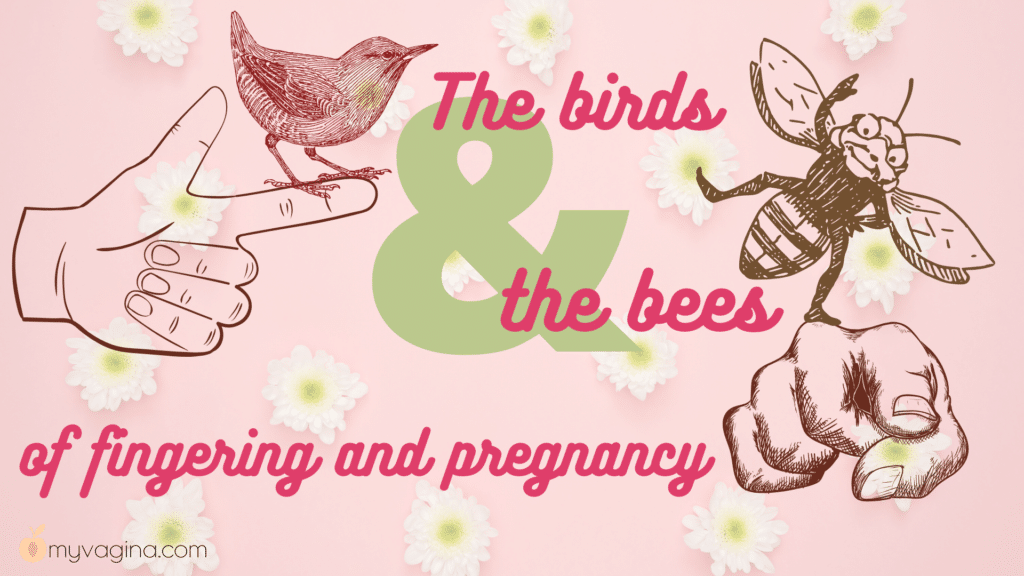Fingering cannot result in pregnancy unless two conditions are met:
- You are ovulating or near/just past ovulation and are fertile; and
- when there is live sperm on the fingers doing the fingering.
To be safe, keep all sperm away from your vagina unless getting pregnant is your goal. Wash sperm away under the tap with soapy water, keep spermy hands and fingers away from your vagina and use a condom if you have penis-in-vagina sex.
If you were fingered and your period is now late, think back to what went on. If you didn’t get sperm near your vagina, your period is still coming. Don’t panic. You are not pregnant.
How do I know if I’m ovulating?
Learning to know the signs of ovulation is easy when you know what to look for, but accuracy relies on several factors: not being on hormonal birth control, having reasonably regular periods, and tracking your periods.
Ovulation could happen at any time between periods, and you should expect every cycle to be different in terms of when your fertile days are.
You cannot accurately predict what day you will ovulate based on tracking alone, so it’s important to be careful around sperm until you think you’ve got it sorted.
(‘Getting it sorted’ can take many months or years, so don’t expect to be an expert straight away. Take your time, track carefully, and you’ll soon get it.)
Instructions on how to identify ovulation and chart your menstrual cycle
Key things to look for to detect ovulation:
- Unusual, wet, slimy feeling when you wipe for about a day
- Having to wipe a few times after peeing, instead of just once
- Feeling of wetness in underwear (without provocation!)
- Feeling a little more confident, sexy, sassy and/or horny (optional)
How to track your periods
The simplest way is to use either a calendar or a period tracking app. You want to record the first day of bleeding of your period each cycle. It may not be every month, or on the same day every month, but this is your cycle length.
This is Day 1 of your period to Day 1 of your next period. It will usually be between 21 and 35 days, and will likely vary each cycle.
This variation in days is why you can’t predict when your period will come by making the mistake of thing it comes ‘every (calendar) month’. It could come twice in one calendar month, and not at all the next calendar month. This is normal! It’s also why when your period is ‘late’, we freak out that we are pregnant.
The reason your cycle length number is important is because we use that to count backwards and help join the dots between when we ovulate and when we get our period.
VERY IMPORTANT CLUE!
The number of days between when you ovulate and when you get your period are always the same!
While this number will vary between you and your friends, it’s always the same for you.
You will get your period 12-16 days after you ovulate.
If you can figure out generally when you ovulate, you can count forwards – once you know how many days your body takes – and predict your period. Cool, huh!
You do have to collect a little bit of data before this will work, but a regular period tracking app or calendar is just fine.
Make a note of what day you feel the wetness in your underwear, and mark that as ovulation day.
Then, mark Day 1 of each period, and in just a couple of weeks, you’ll have your first set of data to use in future predictions.
How fingers can transport sperm to your egg
It’s simple: if you get sperm on your or your sexual partner’s hands (or any other part of their body), then rub it into your vulva or vagina, and you are in your fertile zone, you can get pregnant.
Good luck! If you get stuck, Ask Aunt Vadge.





